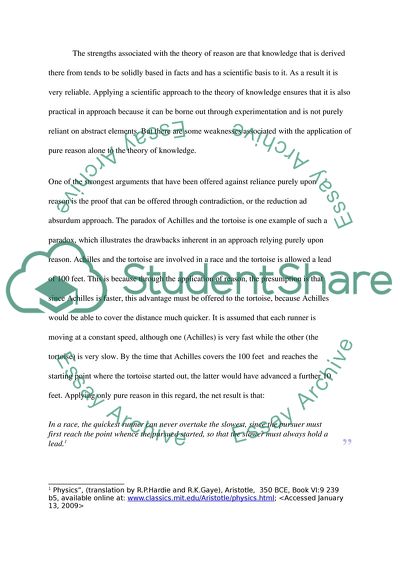Cite this document
(Theory of Reason and Knowledge Term Paper Example | Topics and Well Written Essays - 1500 words - 1, n.d.)
Theory of Reason and Knowledge Term Paper Example | Topics and Well Written Essays - 1500 words - 1. https://studentshare.org/logic-programming/1719742-evaluate-the-strengths-and-weaknesses-of-reason-as-a-way-of-knowing
Theory of Reason and Knowledge Term Paper Example | Topics and Well Written Essays - 1500 words - 1. https://studentshare.org/logic-programming/1719742-evaluate-the-strengths-and-weaknesses-of-reason-as-a-way-of-knowing
(Theory of Reason and Knowledge Term Paper Example | Topics and Well Written Essays - 1500 Words - 1)
Theory of Reason and Knowledge Term Paper Example | Topics and Well Written Essays - 1500 Words - 1. https://studentshare.org/logic-programming/1719742-evaluate-the-strengths-and-weaknesses-of-reason-as-a-way-of-knowing.
Theory of Reason and Knowledge Term Paper Example | Topics and Well Written Essays - 1500 Words - 1. https://studentshare.org/logic-programming/1719742-evaluate-the-strengths-and-weaknesses-of-reason-as-a-way-of-knowing.
“Theory of Reason and Knowledge Term Paper Example | Topics and Well Written Essays - 1500 Words - 1”. https://studentshare.org/logic-programming/1719742-evaluate-the-strengths-and-weaknesses-of-reason-as-a-way-of-knowing.


